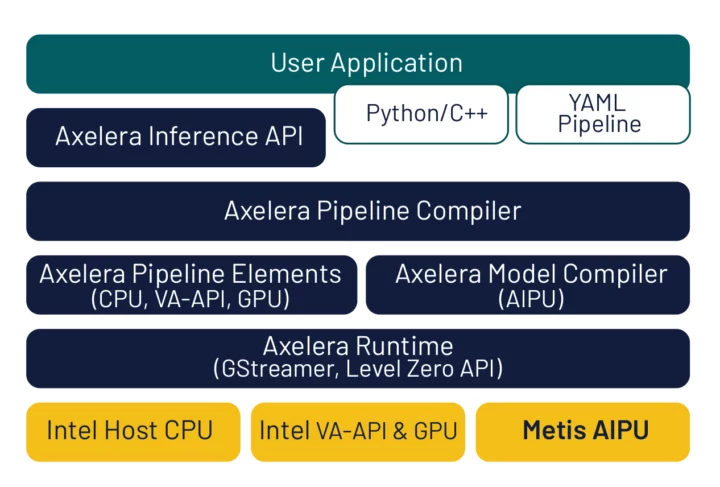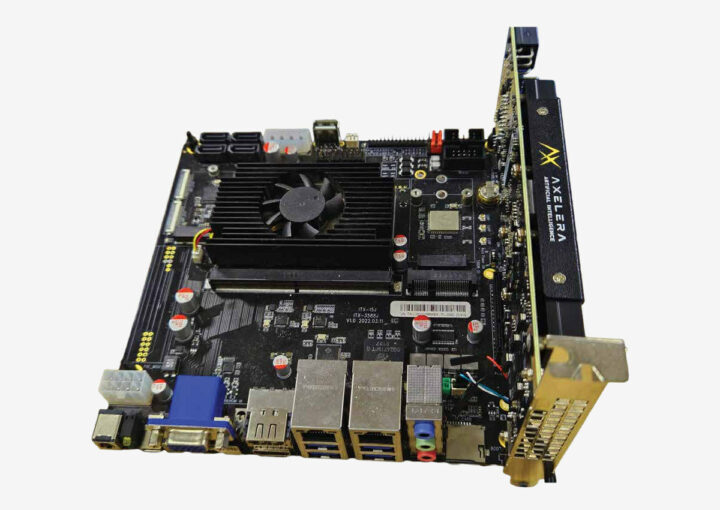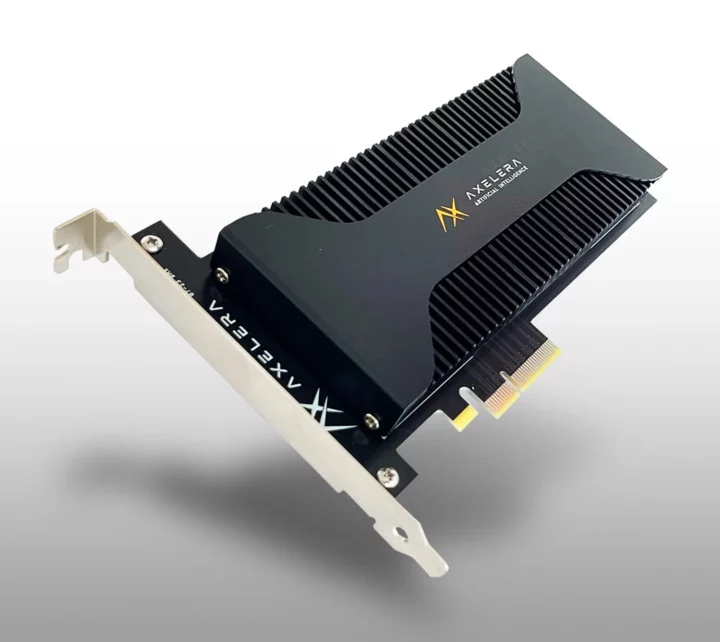Axelera has announced the general availability of several Metis PCIe AI Evaluation Kits that combine the company’s 214 TOPS Metis AIPU PCIe card with x86 platforms such as Dell 3460XE workstation and Lenovo ThinkStation P360 Ultra computers, Advantech MIC-770v3 or ARC-3534 industrial PCs, or the Firefly ITX-3588J mini-ITX motherboard powered by a Rockchip RK3588 octa-core Cortex-A76/A55 SoC. We’ll look into detail about the latter in this post.
When Axelera introduced the Metis Axelera M.2 AI accelerator module in January 2023 I was both impressed and doubtful of the performance claims of the company since packing a 214 TOPS Metis AIPU in a power-limited M.2 module seemed like a challenge. But it was hard to check independently since the devkits were not available yet although the company only started their early-access program in August last year. Now, anybody with an 899 Euros and up budget can try out their larger Metis AIPU PCIe card offered as part of x86 and Arm evaluation kits. We’ll look into detail about the Arm-based evaluation kit in this post.
Metis PCIe Arm Evaluation Kit specifications:
- Mainboard – Fireflix ITX-3588J mini-ITX motherboard
- SoC – Rockchip RK3588
- CPU – Octa-core processor with four Arm Cortex-A76 cores @ up to 2.4 GHz, four Arm Cortex-A55 cores
- GPU – Arm Mali-G610 MP4 quad-core GPU with support for OpenGL ES3.2, OpenCL 2.2, Vulkan1.1
- AI accelerator – 6 TOPS NPU
- 48MP ISP
- VPU
- 8Kp60 video decoding, Decoding up to 32x 1080p30 H.265/HEVC channels
- 8Kp30 video encoding;
- System Memory – 8GB LPDDR4
- Storage
- 64GB eMMC flash
- 1x M.2 SATA 3.0 for 2242 SSD
- 4x SATA3.0 ports
- PCIe – PCIe 3.0 x4 slot
- Dimensions – 0 17 x 17cm (mini-ITX form factor)
- The full specifications for the RK3588 mini-ITX motherboard can be found in the original announcement
- SoC – Rockchip RK3588
- Axelera Metis AI PCIe card
- AI Processing Unit (AIPU) – Axelera quad-core Metis AI accelerator with digital-in-memory computing (D-IMC) delivering up to up to 214 TOPS, up to 3.200 FPS for ResNet-50
- Memory – 1GB LPDDR4x
- Host interface – PCIe 3.0 x4
- Dimensions – 168 x 64 x 40mm; FHHL (full height, half-length), single slot

The Axelera PCIe Evaluation Kit comes preloaded with detection and classication neural networks, including YOLOv5, YOLOv7, Resnet 50, MobileNetV2, and SSD-MobileNetV2. and is supported by the Voyager SDK that aims to “simplify AI deployment in edge devices and ensures end-to-end integration and API compatibility with industry standards, specically tailored for computer vision”. In the Arm platform, the Voyager SDK v0.8.5 runs in a Docker container in Ubuntu 20.04. Supported frameworks include PyTorch, ONNX, and TensorFlow (via ONNX).
The SDK offers Python and C++ APIs and relies on the YAML language to design application pipelines including neural networks, preprocessing, and advanced image operations. It also manages model and dataset integration, pipeline compilation, optimization, and deployment. The Voyager SDK also supports GStreamer for easy integration into inference services and scalability from single to multiple stream and multi-model processing. Note the Voyager SDK is currently only available for customers who ordered evaluation kits, so it’s not available publicly, nor is its documentation.
Axelera’s Metis PCIe Arm Evaluation Kit can be purchased now for 899 Euros, but you’d still need to enter your contact and company details to request a kit. It’s not yet an easy, direct online purchase, but it should be much easier to acquire than during the early access program. x86 development kits can be purchased similarly for €1,299 to €1,899. You’ll find more details and purchase links on the product page. Axelera will also showcase a YOLO-enabled video surveillance analytics demo with 24 streams running on a single Metis AI PCIe accelerator card at Embedded World 2024,

Jean-Luc started CNX Software in 2010 as a part-time endeavor, before quitting his job as a software engineering manager, and starting to write daily news, and reviews full time later in 2011.
Support CNX Software! Donate via cryptocurrencies, become a Patron on Patreon, or purchase goods on Amazon or Aliexpress






